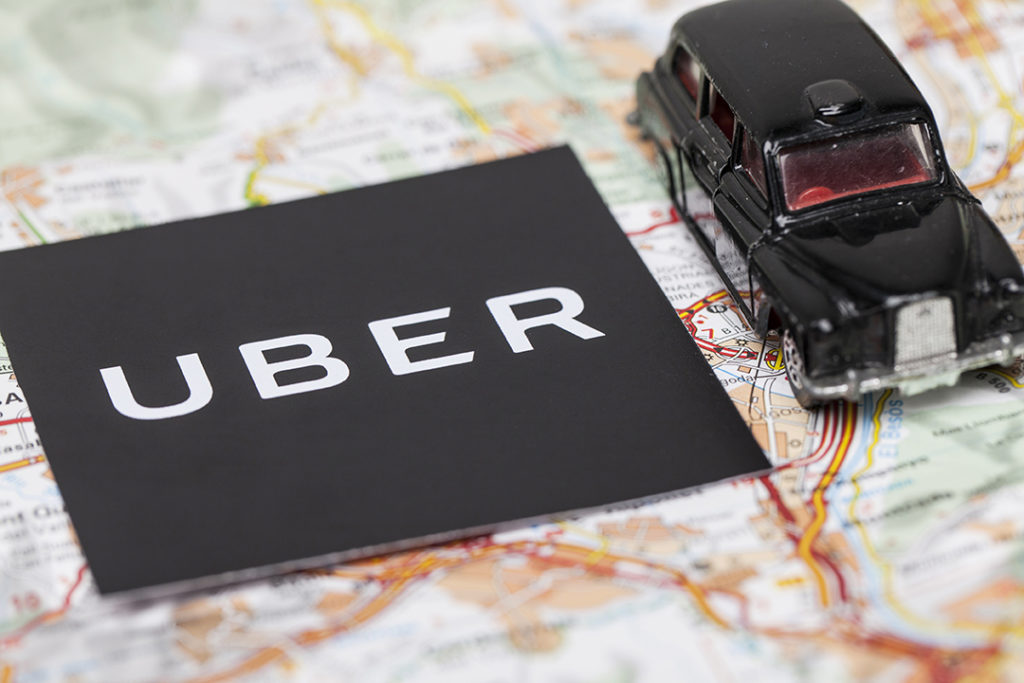The pandemic has ushered in a whole host of ‘unprecedented’ and unforeseen problems, with the taxi and private hire industry hit as hard as anyone. As mentioned in previous articles, there are fewer black cabs on the streets than ever before.
As we know London’s historic black cab trade has had a feud with Uber and similar tech rideshare apps ever since they first made an appearance on UK roads. Black cab drivers feel like Uber drivers are taking an easy and unlawful route into their profession. Desperate times, like a post-lockdown Britain, unsurprisingly haven’t done much to make them see eye to eye.
Is Uber Ignoring The Rules And Creating Their Own Taxi Ranks?
There are 40 licenced taxi ranks in central London and 45 ranks in the City of London. These are the exclusive domain of black cab drivers that have completed the highly challenging “knowledge” test and acquired the appropriate TfL licence.
As lockdown has ended and restaurants, bars and pubs have outdoor dining, road closures have pedestrianised some of London’s busiest roads. This has challenged one of Uber’s unique selling points, which is that drivers will come to wherever you are. Since the beginning of May, Uber has directed customers in popular parts of town to designated ‘pick-up points’. It allows drivers a convenient place to park and wait for passengers and riders a nearby place to go to take their trip.
The black cab trade is contesting this practice. They accuse Uber of essentially creating their version of the taxi rank, further putting the future of the London cabbie in danger.
With the black cab trade suffering one of its historically worst years ever, black cab unions are urging TfL and Westminster Council to shut pick-up locations and legislate against groups of Uber drivers waiting around.
Toes Are Being Stepping On, Even More Than Before
The traditional black cab business model has long been vulnerable to tech-based disruptive apps offering a more flexible service, though app-based platforms for black cab drivers have somewhat filled the gaps. It seems that Uber drivers themselves aren’t being blamed, but instead Uber as an organisation. Steve McNamara, general secretary of the Licensed Taxi Drivers Association, says ‘I don’t think there’s any malicious intent, I don’t think there is an intent to do anything illegal, there’s just the ‘I do what I want’ attitude.
However, Uber will no doubt vigorously defend their actions. Their defence will probably be that black cabs wait at taxi ranks so that passengers can approach and get a ride straight away. Uber are likely to say that drivers are, technically, not doing this. Their “riders” book a journey and then go to meet their driver at a nearby ‘pick-up spot’, where they will get into the car and start their ride. They are likely to argue that it may look strikingly similar to what taxi drivers have done for decades, but it isn’t exactly the same. They will protest that this methodology is better from a public safety standpoint.
Uber, Unsurprising, Are Skirting Around The Rules
Many believe that the American app firm is circumventing the accepted system again. Knowing the location of the ‘pick-up point’, some passengers are heading straight to it and requesting a ride on the way, which gives the job to the nearest Uber driver. Canny drivers will stay close to the pick-up points, knowing that it is the best place to win jobs. In effect, the app is creating a kind of virtual taxi rank.
Alan McGrady, of the London Cab Drivers Club, is convinced Uber is deliberately orchestrating this scenario. He also feels TFL isn’t doing enough to protect cabbies, and that before long other busy London areas will follow suit: ‘If they get away with it here, who’s to say that they’re not going to expand it throughout the West End or onto Oxford Street or onto Regent’s Street?’ McGrady states.
However, a question still remains. While al-fresco dining eats up some of London’s busiest street and preventing cars from picking up patrons quickly – how can private-hire drivers get to their passengers?
Arguments Over London’s Prime Real Estate As People Head Out In Numbers
After one of the hardest years in history for both private hire and taxi drivers, it is easy to see why central London, as it begins to repopulate, is being fought over. Black cab drivers and Uber drivers need to work, not only to recoup the financial losses from lockdown but for the future of their trades. Black cab drivers need to keep the historic trade alive and prevent their numbers dwindling any further by showing that cabbies can still earn a living. Uber, as an organisation, needs to show investors worldwide that the gig economy business model is still viable despite the significant legal strain it has been put under by The Supreme Court.
Cabbies are appealing to TfL and Westminster Council to stop Uber from using loopholes to take what they believe is their exclusive privilege. It remains to be seen who will win the battle.
We await eagerly TfL’s response regarding the dispute!
Plan Insurance provide both black cab insurance and private hire insurance for professional drivers working in the UK.


